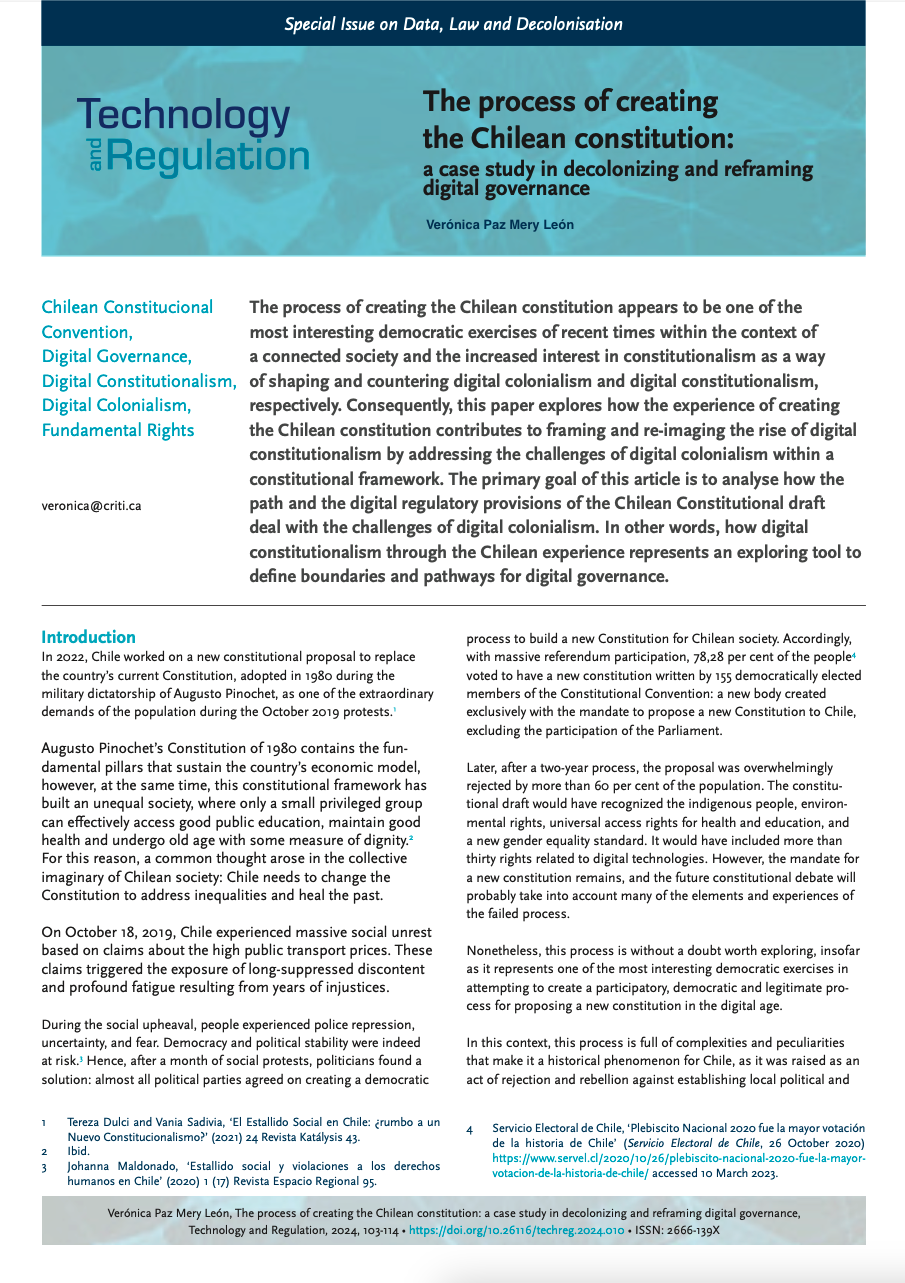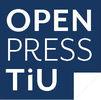The Chilean constitutional-making process
a case study in decolonising and reframing digital governance
DOI:
https://doi.org/10.26116/techreg.2024.011Keywords:
Chilean Constitution making-process, Digital Governance, Decolonising, Constitutional Law, Constitutional Convention, Digital Constitutionalism, Digital Colonialism, Fundamental RightsAbstract
The Chilean constitution making-process appears to be one of the most interesting democratic exercises of recent times within the context of a connected society and the increased interest in constitutionalism as a way of shaping and countering digital colonialism and digital constitutionalism, respectively.
Consequently, this paper explores how the Chilean constitution-making experience contributes to framing and re-imaging the rise of digital constitutionalism by addressing the challenges of digital colonialism within a constitutional framework.
The primary goal of this article is to analyse the path and the digital regulatory provisions of the Chilean Constitutional Convention to explore how both processes seek to offer a new approach to defining digital space through a constitutional lens. The included fundamental rights and principles should at least open the debate on the urgency to rethink how we respond to digital colonialism through a constitutional approach.
Downloads

Downloads
Published
Issue
Section
License
Copyright (c) 2024 Verónica Mery

This work is licensed under a Creative Commons Attribution-NonCommercial-NoDerivatives 4.0 International License.






